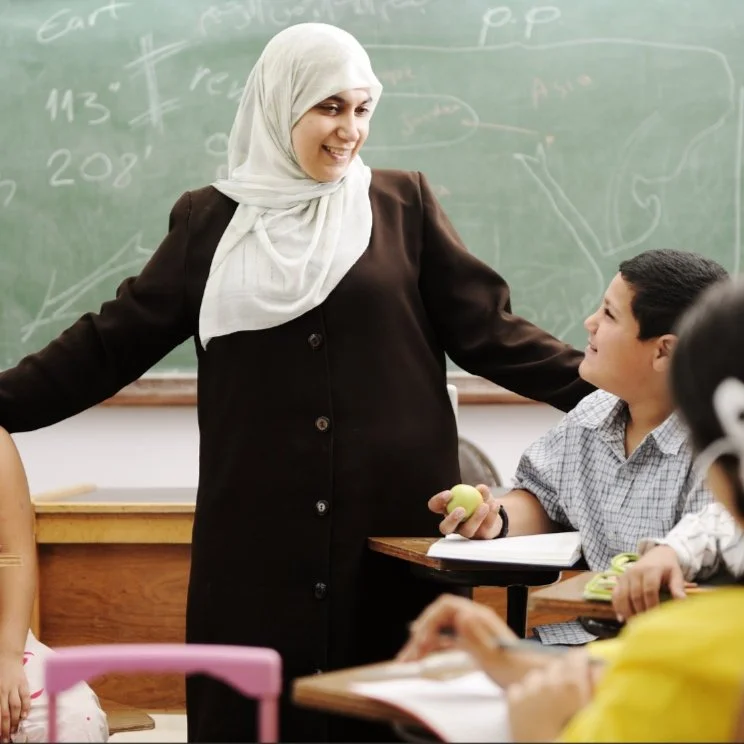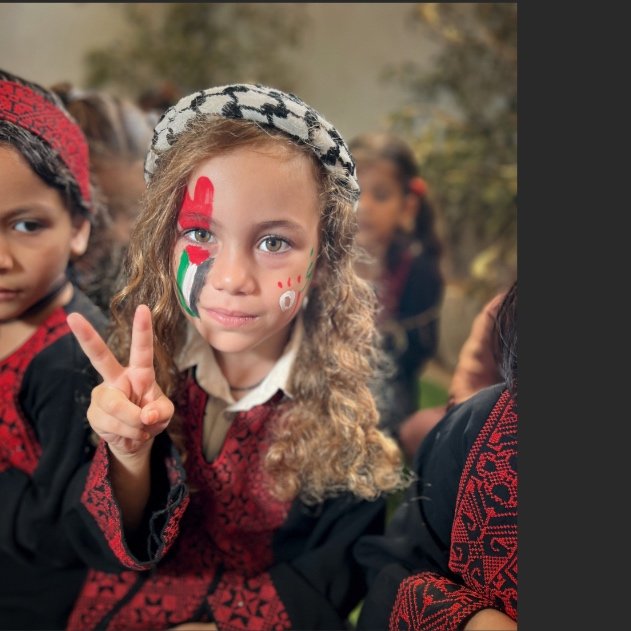Education Equity Resource Hub: Combating Racism and Promoting Inclusion
Islamophobia
Anti-Black Racism
Anti-Palestinian Racism
Welcome to the Education Equity Resource Hub by the Muslim Advisory Council of Canada. This hub serves as a centralized platform to educate, empower, and inspire action against Islamophobia, Anti-Blackness, and Anti-Palestinian Racism and other forms of racism and discrimination.
Islamophobia Resources
Islamophobia: Racism, stereotypes, prejudice, fear or acts of hostility directed towards individual Muslims or followers of Islam in general. In addition to individual acts of intolerance and racial profiling, Islamophobia can lead to viewing and treating Muslims as a greater security threat on an institutional, systemic and societal level.
-
This form, developed by the Muslim Advisory Council of Canada, provides a secure and confidential way for individuals to report incidents of racism, discrimination, or bias, including Islamophobia, anti-Blackness, anti-Palestinian racism, and other forms of hate. Your submissions help us track and address these issues while informing advocacy efforts and the development of community support resources.
-
“Intolerance against Muslims in any form — be it violence, discrimination, harassment or online abuse — has a detrimental effect on the lives of Muslim individuals and communities. This Guide is designed to aid governments in their actions on preventing and combating hate crimes including by an analysis of security risks and the necessary actions required, with the aim of improving the capacity of the police and other institutions to meet the security needs of Muslim communities and individuals. It also touches on select topics, such as the underreporting and under-recording of hate crimes against Muslims. In addition, the Guide sets out practical steps that governments can take to address issues of security for Muslim communities, which work in tandem with the efforts within these same communities.”
-
“Islamophobia is when people fear or hate Muslims and Islam. Islamophobia can lead to attacks and discrimination against Muslim people. This problem has existed for a long time. Islam is the second most common religion in Canada, after Christianity. In 2021, approximately 4.9% of the Canadian population was Muslim.”
https://www.thecanadianencyclopedia.ca/en/article/islamophobia-in-canada-plain-language-summary
-
“Religious intolerance can be understood as an intolerance of a person’s religion, religious beliefs or practices. It is rooted in the negative attitudes, values, and beliefs held towards those of a particular religion. While attitudes of religious intolerance can be very difficult to measure and quantify, actions are more recognizable.”
https://www.chrc-ccdp.gc.ca/resources/publications/discussion-paper-religious-intolerance
-
“A new study from the non-profit Angus Reid Institute finds unfavourable views of Islam prevalent across the country at varying levels and highest in Quebec.”
-
Anti-Palestinian Racism Resources
Anti-Palestinian Racism: Anti-Palestinian racism refers to any form of discrimination, marginalization, or violence targeting individuals or groups based on their Palestinian identity. This includes but is not limited to:
-Denial of Palestinian History and Culture
-Dehumanisation through Stereotypes
-Suppression of Advocacy and Political Expression
-Systemic Discrimination in Institutions
-
-
“ACLA’s Anti-Palestinian Racism report is a resource that provides a description of anti-Palestinian racism; explains how it operates to silence discourse on Palestine; and outlines the impacts of anti-Palestinian racism on individuals and the broader community.”
-
The Institute for the Understanding of Anti-Palestinian Racism consists of researchers, physicians, psychologists, and legal, anti-racist and communication experts who are committed to empirically researching, educating and advocating on the impact of anti-Palestinian racism on individuals and communities across all sectors of society.
-
“Muna Saleh and Nada Awwad explore how Palestinian students in Canada experience systemic anti-Palestinian racism in educational institutions, often being silenced, marginalized, and denied the right to express their identity and history. The document reflects how this racism intersects with other forms of discrimination, such as Islamophobia, and details the widespread repression of pro-Palestinian perspectives, particularly in classrooms. This discrimination against Palestinians and their advocates severely limits freedom of expression and academic freedom, as discussing Palestine is often censored or met with punitive measures.”
Anti-Black Racism Resources
Anti-Black Racism: Policies and practices rooted in Canadian institutions such as, education, health care, and justice that mirror and reinforce beliefs, attitudes, prejudice, stereotyping and/or discrimination towards people of Black-African descent.
-
The report transmitted herewith contains the findings of the Working Group of Experts on People of African Descent on its visit to Canada from 17 to 21 October 2016. In it, the Working Group presents the current legal, institutional and policy framework, and measures taken to prevent racism, racial discrimination, xenophobia, Afrophobia and
related intolerance faced by people of African descent in Canada, underscoring positive
developments as well as gaps in implementation. The Working Group describes the situation, highlights good practices and the main challenges identified, and makes concrete recommendations.
United Nations A/HRC/36/60/Add.1
General Assembly Distr.: General
16 August 2017
https://digitallibrary.un.org/record/1304262?ln=en&v=pdf -
“The term ‘Anti-Black Racism’ was first expressed by Dr. Akua Benjamin, a Ryerson Social Work Professor. It seeks to highlight the unique nature of systemic racism on Black-Canadians and the history as well as experiences of slavery and colonization of people of Black-African descent in Canada.”
-
“Halton Black Voices creates safe spaces to discover and acknowledge the truth of our experiences with others in our community. We intend to elevate Black consciousness by affirming Black existence and encouraging self love, determination, and enlightenment to move towards Black liberation. We collectively work with Indigenous communities to build reciprocal awareness of our experiences and move forward together to dismantle systemic oppression and inequity.”
-
“Black people have been in Canada since the early 17th century (see Black Canadians). Throughout their 400-year history in Canada, Black people have faced racism, discrimination and hostility based on the colour of their skin.”
https://www.thecanadianencyclopedia.ca/en/article/anti-black-racism-in-canada
-
“Black people in Canada have a history of oppression, resistance and perseverance. Although much of Black people’s early history in Canada involved enslavement and segregation, Black people have demonstrated resilience throughout time.
Through trailblazing and advocacy, Black people have achieved various milestones and accomplishments that have contributed to Canadian society. These contributions have influenced and defined Canadian culture and shaped history.”
https://www.justice.gc.ca/eng/cj-jp/cbjs-scjn/fact2-fait2.html
-
“This professional advisory provides advice on ways in which educators can improve their daily practice to proactively address anti-Black racism. The goal is to provide support in creating inclusive and supportive learning cultures that benefit all students, regardless of their identity. Given the focus of school boards and government departments on anti-Black racism, now is an ideal time for OCTs to examine their practice to eliminate the barriers and mitigate the adverse impacts that anti-Black racism causes.”
-
“Examples from across Canada point to the pressing need to address anti-Black racism in education.3 In October 2020, for example, a Black student in Ontario opened his high school yearbook to find that the message he had written paying tribute to his late grandmother was replaced with a racist slur.4 In 2019, the mother of an elementary school student filed a complaint with Quebec’s Human Rights and Youth Rights Commission after her son was beaten and called the N-word by classmates who faced no disciplinary action.5 In September 2016, a six-year-old Black girl was handcuffed at her wrists and ankles for 28 minutes at her school in Ontario by police officers who said she was acting violently.6 In Manitoba, a student left their high school after the school administration failed repeatedly to discipline racist bullies.7 Although school boards in Canada rarely collect statistics on the race of students and their experiences of racism across the education system—at least not in any systematic way—anecdotal evidence and news stories such as these suggest that research on the situation in Canada would likely reflect similar findings in other countries (see Appendix 1).”






